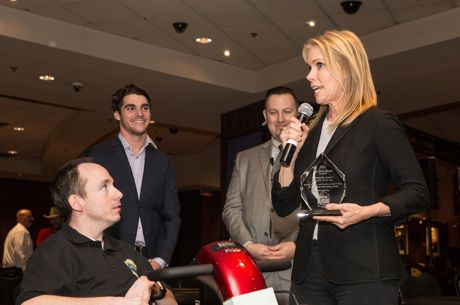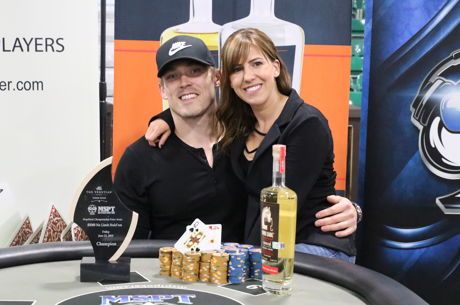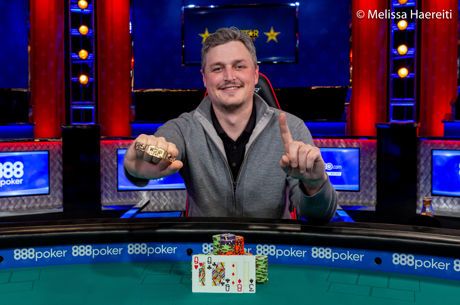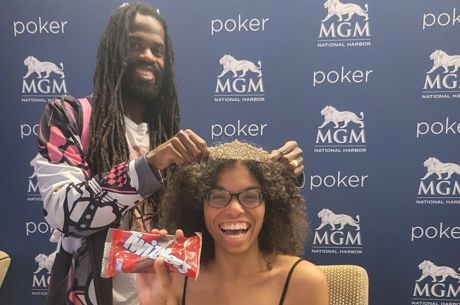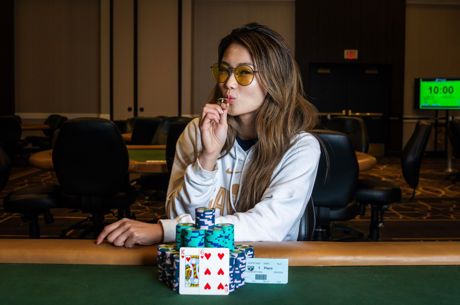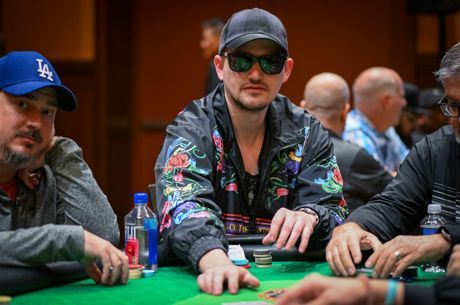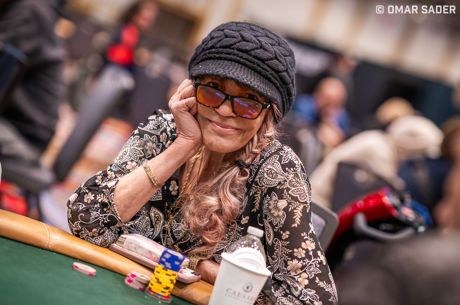Bright Guy: Counting Cards with Bob Bright
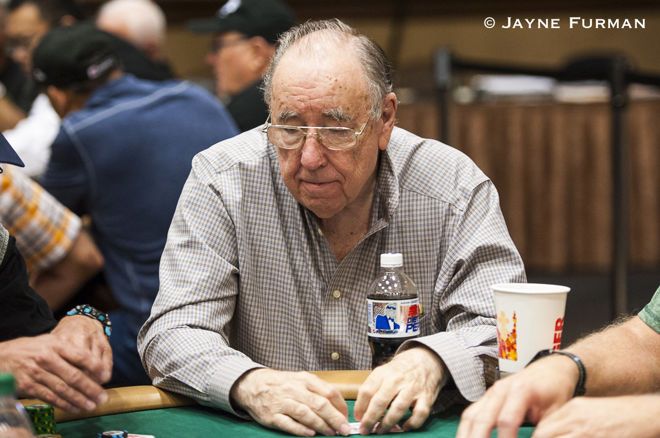
It's a bustling Saturday night in the casino in the early-1970s. The scene is similar to today, but Las Vegas is a bit different. Cigarette smoke hangs in the air and slot machines that pay out real coins go plink, plink, plink as players rake out their winnings. Dice tumble down the craps table with gamblers taking swigs on beer or sipping a martini.
Bob Bright is seated nearby at a blackjack table with eyes trained on the cards. Everyone else may be out for a good time, but Bright is working. This is his office. Just when the count in the deck moves in his favor, he raises his bet, moving more chips in and waiting for those cards to fall his way. He��s beating the casino one hand at a time.
As the $1,000 Super Seniors event continues in the Rio on Monday, Bright may seem like just another player. Poker is a real interest of his, but it was a card game of a different sort that had him spending hours and hours in casinos �C and had him asked not to return in many.
Math Man
Growing up in Long Beach, Calif., Bright attended a private high school. He did well academically and even from an early age excelled especially at one thing.
��I��ve always been into math,�� he says.
After high school, Bright studied business in college, but left to join the U.S. Army. Even as he joined, his math skills were on display.
"I had $3,000 and took my three kids at the time and moved here to Las Vegas to count cards.��
��I went into the Army because they had a draft at the time, and you could either go on your own and get it over with or wait to be drafted,�� he says. ��They said I was the first guy in 10 years to score perfect on their math test for the county of Los Angeles. They wanted me to become an officer, but I said no. I just told them I'd rather be an enlisted man and serve my two or three years.��
When Bright joined, it was in the days right before the escalation of war in Vietnam. The Cold War was in on and he witnessed big historical events as he served in the early-1960s. While stationed in South Korea for 16 months, the Berlin Wall was built in Germany and American servicemen were training and aiding in south Vietnam.
��The company I was involved with had some night runs to send ammunitions to Vietnam," Bright says. ��We weren't particularly in a war yet, but it was the beginning of a war in Vietnam.��
He didn��t see action, but took note of all the events around him and was a witness to the Cold War and America��s place in the world. The Army is where he also first began playing poker. After being discharged in November 1962, Bright would soon see a complete change of scenery �C from southeast Asia to the bright lights of Las Vegas.
Card Counter
An affinity for math would pay off for Bright. After leaving the service, he finished degrees in accounting and management from the California College of Commerce in 1963 and began working in California for a large S&P 500 financial firm. However, after 12 years he decided that life at the firm was no longer for him.
��I reached the limits of what I considered I could do with the company,�� he says. ��I was the next job hire in the hierarchy to be a division financial controller, and I didn't want to do it. So I just quit and went to Vegas to play blackjack for a living.��
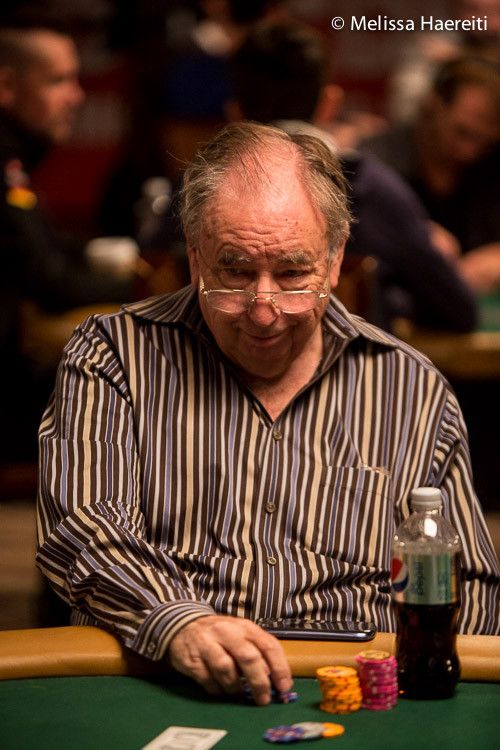
That sounds like quite a career change for most people. But with a mathematical brain, Bright believed he had the chops to beat the casinos. This was decades before the famous MIT blackjack counting team.
After leaving the firm in 1974, Bright studied card counting and got to work fine-tuning his craft. He was a lone wolf out on the prowl, hitting casino after casino throughout Vegas to support his wife and children. And he was good at it.
Bright also began playing poker in the 1970s, splitting time between California card rooms and counting cards in Sin City. After six months, however, that schedule changed.
��I figured out there wasn't any real poker players who had any money, and that the real money was in blackjack at the time,�� he says. ��So I moved to Vegas. I had $3,000 and took my three kids at the time and moved here to Las Vegas to count cards.��
��I went to Caesars and tried to make enough in one weekend. I didn't quite make it, I only made about $56,000.��
Getting ��back-roomed�� (given a stern warning by casino management and told not to return �C?often with fists) or sent out the back door became a part of doing business. But casinos back then had less of an interest in card counters, Bright says, and he never faced the end of a bat or fists of fury like in movies.
With a background in business and math, Bright also enrolled in classes at UNLV focusing on casino management to learn about the other side of the blackjack table. The classes gave Bright a real education on the ins and outs of the casino business, and some opportunities to take advantage at the tables.
After playing Vegas for a while, Bright sought to move his family to St. George, Utah, allowing him to get out of Vegas and float in just to play. The drive was just under two hours, but made it easy to be incognito as he worked his way through the 52 casinos in Vegas at the time. But this player didn��t want a mortgage, and had a goal to quickly make enough to pay for the four-bedroom house he had eyes on. He��d need $65,000.
��I went to Caesars and tried to make enough in one weekend,�� he says. ��I didn't quite make it, I only made about $56,000.��
The blackjack winnings were close enough and he and his wife bought the house the next week. That turned out to be his biggest cash. His analytical, mathematical mind helped him succeed at counting while so many others failed or quit.
��There were a lot of people trying to count cards at the time; the problem was 95 percent of the people that tried to count would lose eventually anyway,�� he says. ��They couldn't handle the discipline.��
Investing & Poker
After a few years of counting, the casinos caught up with him. Bright began to get banned and decided to try another line of work in 1978. He began trading options on the Pacific Stock Exchange.
��It was the same type of stuff,�� he says of switching from card counting to trading options. ��It��s just all math.��
Bright used many of his blackjack mathematical strategies to create his investing systems. In 1992, he founded Bright Trading which offers capital and stock trading services. The company is still going strong over 25 years later, offering advice and services to investors.
As the action played out in the Rio on Monday, Bright made it into the money when the bubble burst about noon. The $1,000 buy-in may be a little on the low end for Bright. In 2012, he was among the 48 players who ponied up $1 million to jump in the inaugural Big One for One Drop. He is also a regular player in high-stakes cash games and played in some televised games throughout the 2000s.
��Poker is still a challenging, complex game.��
The former card counter has a nice poker resum�� �C including $842,000 in live tournament earnings. That includes two WSOP Circuit wins in 2005 and 2006. He��s made several final tables, and his best cash came in 2006 in a $2,000 No-Limit Hold'em event, in which he finished third for $261,170. He��s also cashed three times in the $10,000 Main Event since 2008.
With his cash in the Super Seniors event, it will be 2-for-2 in the seniors events this summer. He also cashed in the $1,000 Seniors Championship a few days ago, taking 482nd for $1,993.
Ultimately, Bright went out in 151st for $1,972 in the Super Seniors. Not bad for an event that featured 2,191 entries. Like those old days counting cards at the blackjack tables, he still finds the game rewarding.
��Poker is still a challenging, complex game,�� he says. ��It has a lot of math still involved with it that when playing, you have to use your mind �C not just use algorithms.��
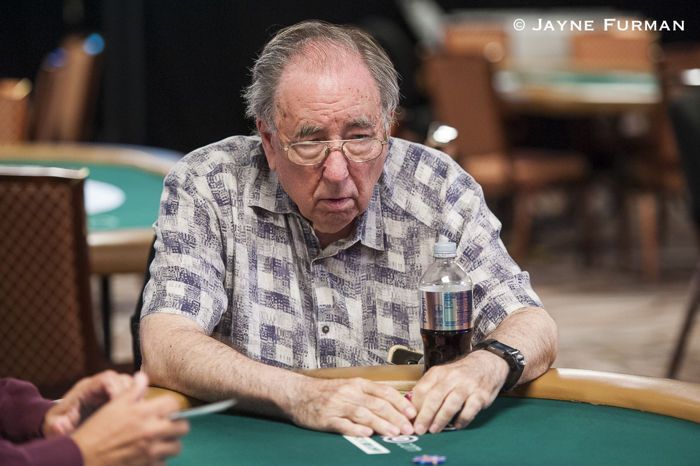
PokerNews covers all the 2018 WSOP tournaments with live updates. Follow along with the PokerNews WSOP Live Reporting blog.
Sean Chaffin is a freelance writer in Crandall, Texas. His work appears in numerous websites and publications. Follow him on Twitter @PokerTraditions. He is also the host of the True Gambling Stories podcast, available on iTunes, Google Play, TuneIn Radio, Spotify, Stitcher, PokerNews.com, HoldemRadio.com, and TrueGamblingStories.com.

